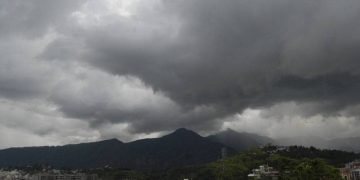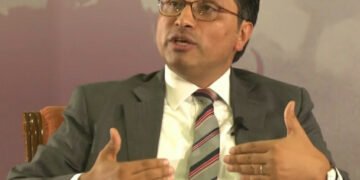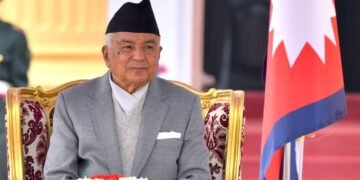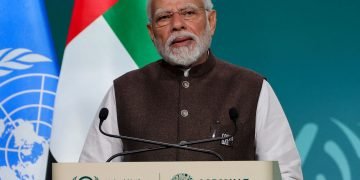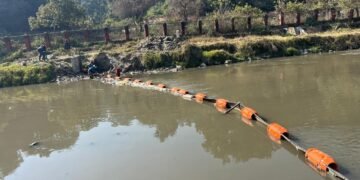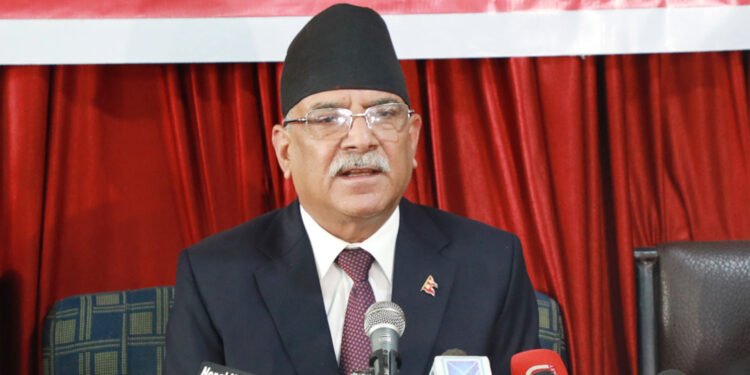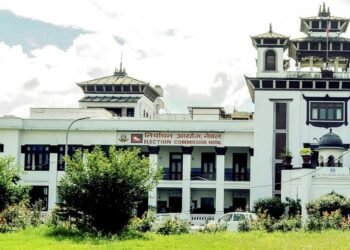KATHMANDU: China is holding a four-day annual conference of the Boao Forum for Asia (BFA) in its Hainan province’s Qionghai city from March 28. But in this offline meeting, the first, since 2019, Prime Minister Pushpa Kamal Dahal is not participating despite getting an official invitation from China.
Chinese Ambassador to Nepal Chen Song invited Prime Minister Dahal to participate in the annual conference of BFA, established in 2001 with a projected objective for the integrated economic development of Asia. But as per media reports, Dahal declined the invitation, citing prior commitments regarding the Prime Minister’s scheduled visit to India.
However, no official statement has been issued by the Prime Minister’s office in this context so far. But Beijing looks at it as a major setback since Dahal, a leader of the Communist Party of Nepal, is considered as pro-China leader in the country.
“We know that even though China had extended an official invitation, Prime Minister Dahal is not participating in the BFA and there lies a geopolitical reason behind it,” Zhang Shubin, Director of the Nepal Studies Centre at Hebei quoted by The Kathmandu Post as saying.
Singapore Prime Minister Lee Hsien Loong and Malaysian Prime Minister Anwar Ibrahim, as per Bloomberg, are among the major dignitaries who are likely to attend the annual BFA meet which will continue till March 31.
Themed on development and inclusiveness, efficiency and security, and regional and global cooperation, the BFA’s annual conference will be also attended by heads of international organizations, business leaders, and academia, China Daily said.
For China, non-participation of the Primeminister Dahal in the BFA annual conference is seen as a snub and it has come to Beijing at a time when the latter is pushing the country to implement the Belt and Road Initiative. In May 2017, Nepal joined the BRI when Dahal was heading the government in the Himalayan country in alliance with the Nepali Congress.
More than five years have passed since Nepal joined the BRI, which is sometimes referred to as the New Silk Road initiative, Kathmandu has not implemented a single project under the ambitious BRI. As many as nine projects have been identified by Nepal for the initiative.
But after watching painful developments in Sri Lanka, Pakistan, Zambia, and several other countries that have fallen into huge debt after taking loans from China to execute projects under BRI, Nepal is maintaining caution over the China-led initiative.
The Nepal government under former Prime Minister Sher Bahadur Deuba, despite pulls and pressure from China, rejected accepting commercial loans for rail-road connectivity projects under the BRI as it feared falling into a debt trap.
In November 2022, the Nepal government expressed its reservations over Beijing’s proposal to sign a deal to carry out a feasibility study of the trans-Himalayan China-Nepal railway.
However, within 24 hours after Dahal was sworn-in as Prime Minister of Nepal, China sent a six-member team of experts to Kathmandu for a feasibility study of the China-Nepal cross-border railway on December 27.
It is estimated that the China-Nepal rail line will cost the Himalayan country around $8 billion, which is more than a fourth of the country’s total GDP. For Nepal, a low-income country, it will be highly unlikely to repay the interest and principal amount of loans to be taken for this project.
Therefore, Nepal is asking China to extend grants not commercial loans for executing projects under BRI.
While Beijing is sitting on the files containing such requests, China-constructed Pokhara International Airport has come under scrutiny as it can accommodate only smaller aircraft with less fuel and passenger load.
Critics say the Pokhara International Airport is heading to become a white elephant, like Sri Lanka’s Hambantota airport, which has been built without assessing its economic viability.
This has led to a hardening of negative perceptions against China-led projects among people in Nepal. Their suspicion that Nepal will get further trapped under debt has increased. Nepal is already burdened by nearly $8 billion in external debt and further borrowing of loans, particularly under the commercial bracket may lead to a deepening of economic problems and repayment issues for the country.
However, China is worried that Nepal has been swept off its feet under the US-led Millennium Challenge Corporation. Ratified by Kathmandu in February 2022, the MCC offers a $500 million grant to Nepal for the development of road and other connectivity projects.
Last month, former Prime Minister K P Sharma Oli-headed Communist Party of Nepal-Unified Marxist-Leninist withdrew its support to the Dahal-led government.
China is now finding it hard to leverage its influence on the current dispensation in the Himalayan country as it is survived by support from the Nepali Congress which has 89 members in the Parliament.
Before Beijing could take note of geopolitical development in the region, Nepal Prime Minister Dahal has snubbed China by declining to attend its BFA conference.


